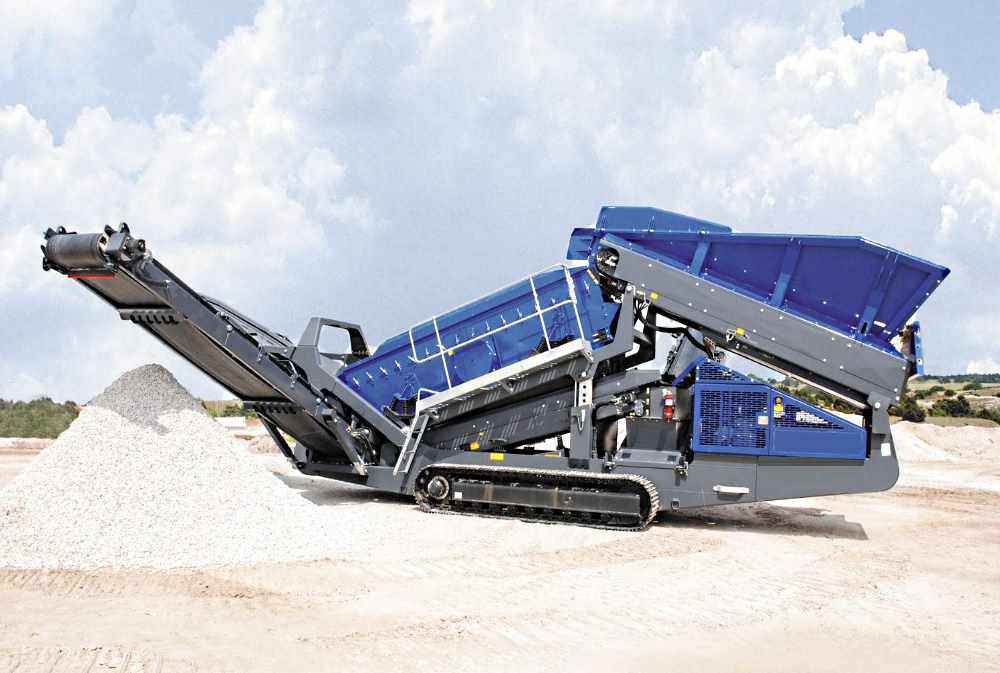Cost management, flexibility, and efficiency are critical in the fast-paced construction industry of today. Sand, gravel, crushed stone, and other materials must be separated and sized using screening equipment, one of the numerous instruments that make an operation go more smoothly. Renting screening equipment has emerged as a viable option for many contractors and site managers, offering flexibility without the long-term ownership commitment. This method has changed how resources are managed and productivity is maximized in contemporary building projects.
The Significance Of Screening
One essential stage in preparing building materials for a particular use is screening. Materials must be arranged by size and kind, whether they are being used for concrete production, backfill, road foundation, or landscaping. Sifting through raw or recycled materials to eliminate large particles and guarantee a uniform output is what screening equipment accomplishes.
Construction firms used to often possess their own screening facilities, but with today’s fluctuating project budgets and schedules, this approach isn’t always practical or economical. Renting screening plants may provide a competitive edge without requiring a significant initial outlay of funds.
Adaptability In Line With The Project
The versatility of screening plant rentals is one of its main advantages. The size and scope of projects vary greatly, and the kind of material that requires processing might differ from one location to another. Whether they want a high-capacity machine for extensive earthworks or a small unit for a constrained urban location, renting enables contractors to choose screening equipment that is ideal for each individual task.
Businesses may also employ the newest models with the newest safety features and technology, thanks to rentals. Without investing in a long-term asset, this guarantees improved performance, less downtime, and higher material separation accuracy.
Capital Preservation And Cost Control
The cost of owning large equipment, such as screening facilities, is not the only consideration. Depreciation, insurance, storage, and maintenance all add up, particularly if the equipment isn’t utilized often throughout the year. It doesn’t make financial sense for many construction companies, particularly smaller or mid-sized ones, to invest in idle equipment between works.
Renting screening plants removes many of these worries. Because contractors only pay for the equipment when they use it, they can better plan their budgets and avoid unforeseen costs. Thanks to this pay-as-you-go model, businesses can devote money to other crucial aspects of their operations, including marketing, manpower, and supplies.
Increased Productivity At Work
Using the appropriate screening equipment may greatly increase the worksite’s efficiency. Construction operations run more smoothly and with fewer delays when materials are properly vetted. A well-matched screening facility guarantees the proper material sizes for particular applications, minimizing waste and eliminating the need for further processing.
Rentals also offer the advantage of professional setup and assistance. To guarantee that the equipment is utilized safely and efficiently right away, the majority of rental businesses provide delivery, setup, and operator training. This may be very helpful for personnel unfamiliar with a particular machine model.
Sustainability And Environmental Aspects
Sustainability is becoming more and more important in modern buildings. Reusing on-site materials is made possible by effective screening equipment, which helps achieve these objectives. Contractors may recycle and reuse materials that would otherwise be considered garbage by screening broken concrete, asphalt millings, or excavated earth. This lessens the effect on landfills, lowers transportation-related emissions, and eliminates the need for new materials.
Renting screening plants makes this strategy more affordable. Instead of committing to a complete purchase, businesses may rent a unit for the parts of a project where recycling materials is advantageous. In addition to complying with legal standards and green building techniques, this lessens the environmental impact of construction.
Maintaining Competitiveness In A Market With High Demand
Being able to rapidly adjust might be the difference between landing a contract and losing one in a competitive construction market. Renting screening plants gives contractors the advantage of having immediate access to the equipment they need. Rental solutions help organizations remain flexible, whether they are taking on unforeseen work or reacting to a sudden change in project needs.
Additionally, compared to older owned versions, rental screening equipment is often newer and better maintained, which means fewer malfunctions and more dependable operation. Better project timeframes and happier customers are direct results of this dependability.
Conclusion
Renting a screening machine has become a potent instrument for boosting output, controlling expenses, and preserving flexibility in the rapidly changing world of contemporary building. Contractors may get cutting-edge screening equipment that meets their immediate demands without having to worry about capital expenditures or upkeep by opting for rental rather than ownership. The importance of rental solutions for effective and sustainable project execution will only increase as construction needs continue to rise and change.
